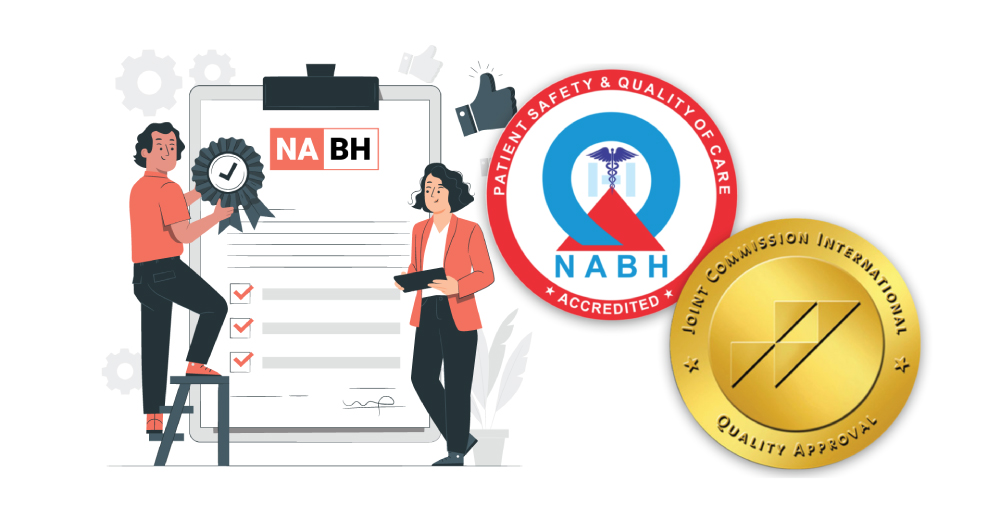Patient safety is the fundamental principle for implementing quality systems in a hospital. Health systems around the world are very dynamic and work in an environment with rapid social, economic, and technical changes. As hospitals started realising the mandate of establishing health systems, they believe receiving accreditation is the only source to deliver the best quality.
In today’s times, the demand for quality in healthcare services has risen due to changing trends of market forces such as medical tourism, insurance, corporate growth, and competition.
Expectations of the patients for excellence in quality have also increased, which certainly leads to the introduction of national and international accreditation bodies to act as a quality assurance agency, thus enhancing customers access to better healthcare services.
The “primary goal of the accreditation” is to ensure that the hospitals not only perform evidence-based practices but also give importance to “access, affordability, efficiency, quality, and effectiveness of healthcare.”
Focusing on Systems & Processes:
The majority of medical errors result from faulty systems and processes, and not by the individual. Thus quality improvement programs aim to eradicate these avoidable errors and improve effectiveness, hence by improving service delivery, patient safety & satisfaction by targeting process-of-care measures.
Benefits of Continuous Quality Improvement Initiatives:
It encourages all team members to continuously ask the following questions:
- How are we performing?
- Can we examine ways to increase efficiency and improve outcomes?
- Can we increase staff and patient satisfaction?
The advantages of a well-implemented quality improvement initiative can be seen both at the level of the providers and the patients. Quality Improvement initiatives commonly benefit healthcare providers by improving patient health outcomes leading to patient retention, loyalty, and growth.
Significance of Quality Management Tools:
Quality Management tools help an organisation to collect and analyse data for employees to easily understand and interpret information. Quality Management models require extensive planning and collecting relevant information about end-users. But not many hospitals employ these tools routinely.
The focus of certification or accreditation should be better placed in assuring the quality of care, rather than creating competition between hospitals/marketing.
Quality of care is doing the right things to the right people at the right time and doing things right the first time.
But the reality of Indian healthcare accreditation is all about documentation, filling forms, displays, etc with less focus on actual improvement in pathways and processes.
In the long run, the question that stares all of us is whether making the concept of “Quality Healthcare for all” – a myth or a gradual effort that can be realized and endured only through continuous quality improvement not by accreditation or Certificate ???
